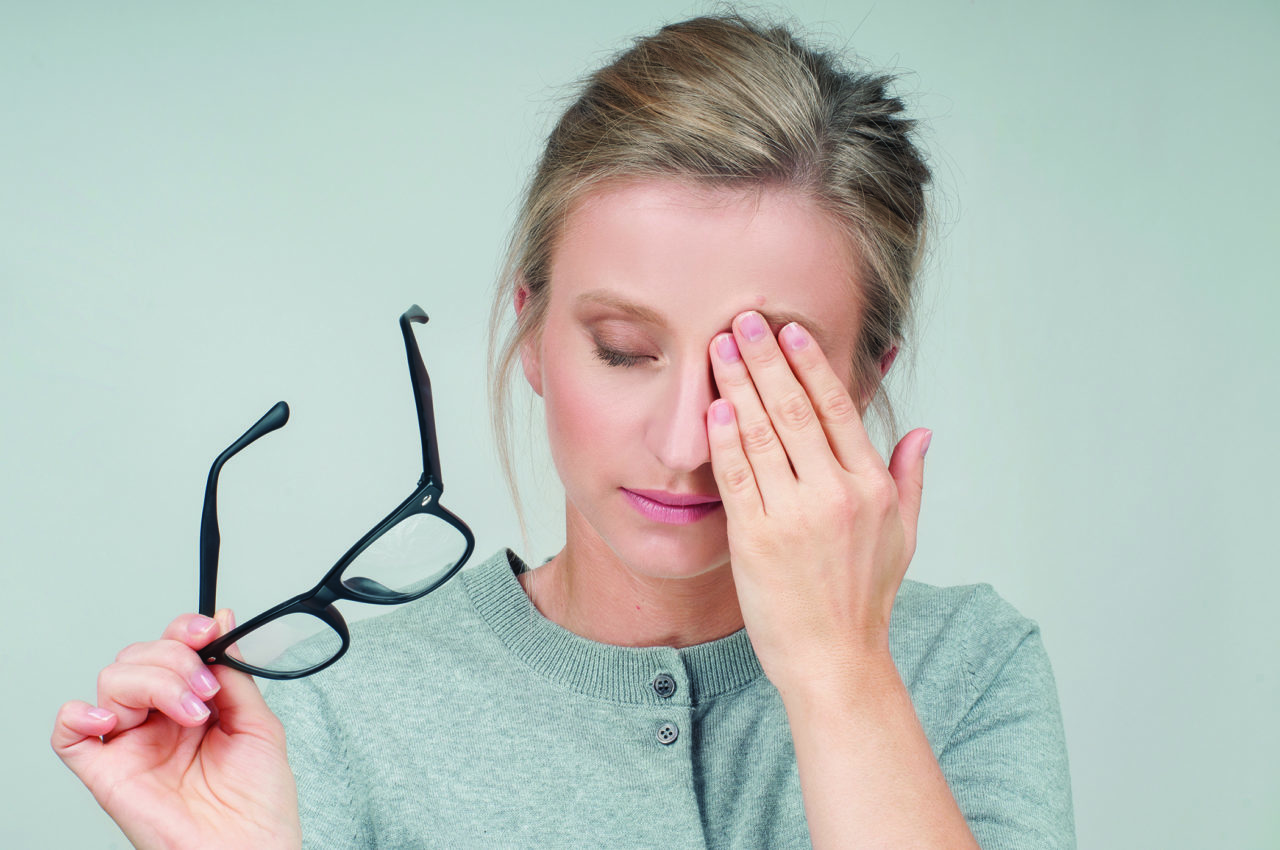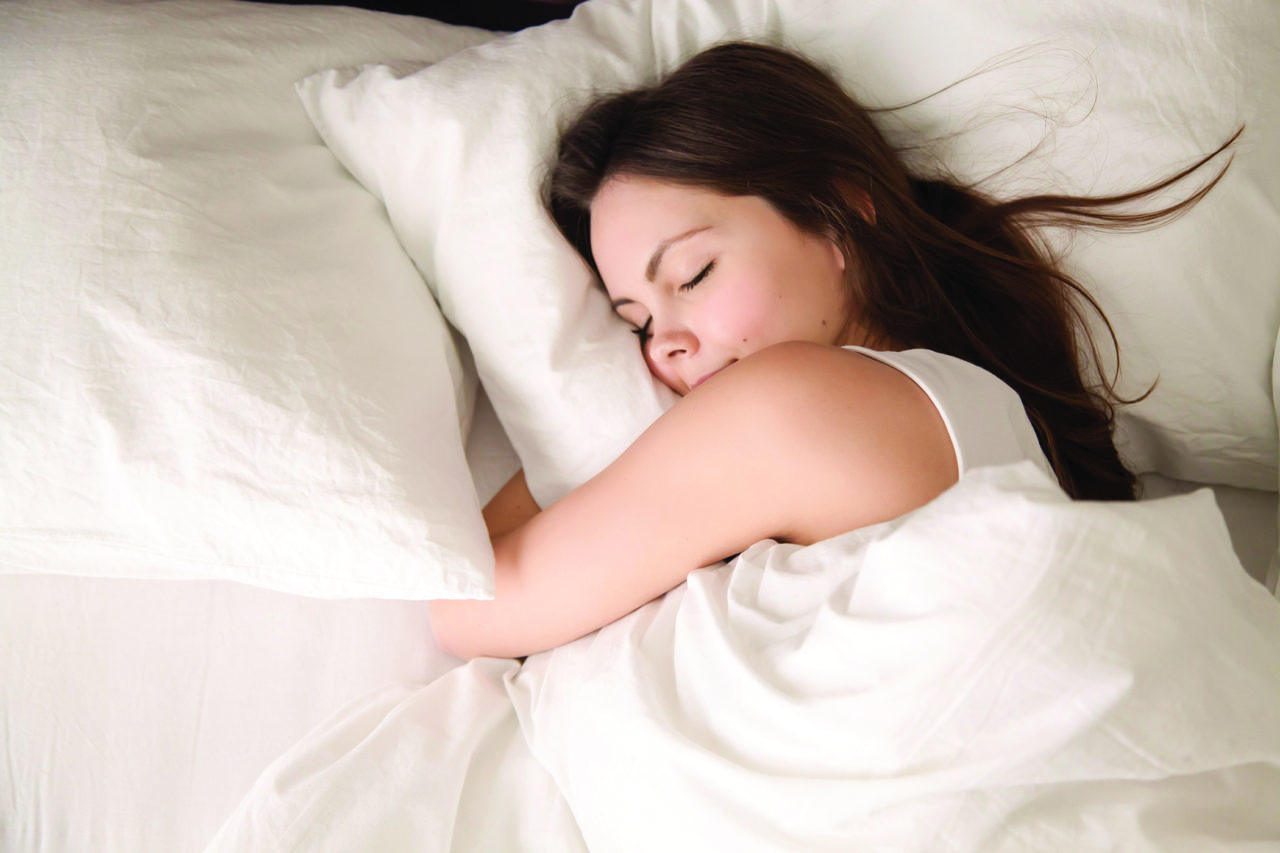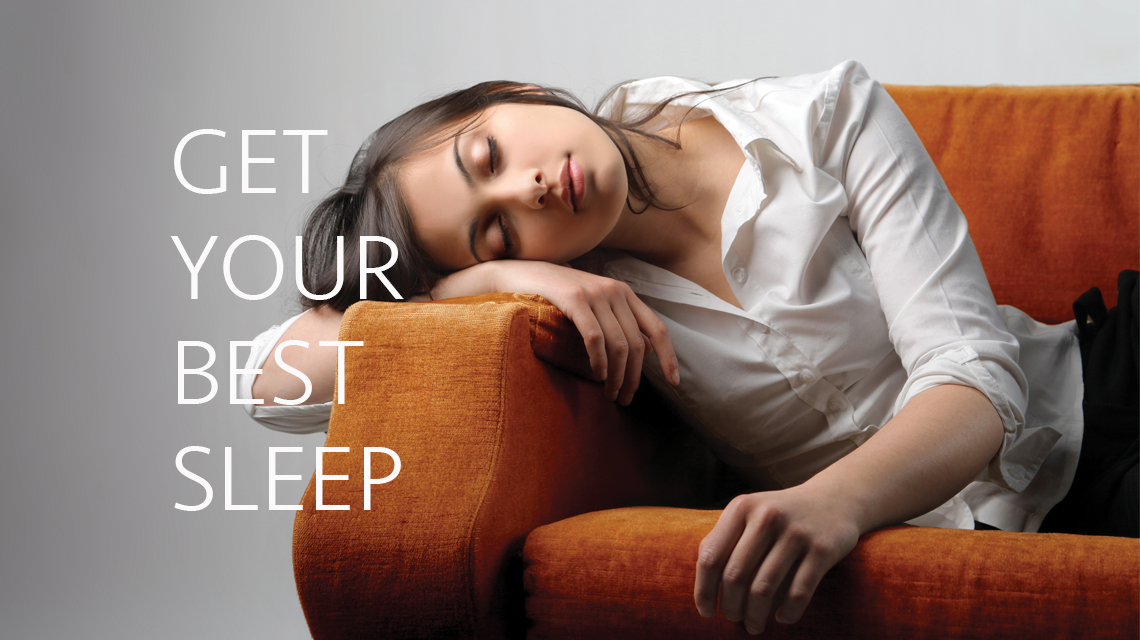“Get more sleep.”
“Make sure you get your beauty sleep.”
“Sleep is your best friend.”
By Dawn Duncan
These are words of advice we have heard countless times. However, what happens when these well-intended suggestions don’t work and we’re left with sleepless nights and tired days? Our best sleep may not be as easy to access as just knowing that we need it. And, as many insomniacs can attest, it is impossible to will yourself to better sleep. It takes practice and, sometimes, extra effort to achieve.
Americans tend to live highly stressful lifestyles, and it is estimated that 50 to 70 million of us experience sleep problems that affect our health. Stress combined with the poor dietary choices that many Americans make (high fat, sugar, salt, etc.), can add up and lack of sleep can be one result. Poor sleep is also often in tandem with a host of other issues, including diabetes, obesity, depression and cardiovascular disease.
While most people acknowledge the importance that diet and exercise play in our overall vitality, they often don’t place the same importance on sleep. However, according to Fort Collins-based psychiatrist Dr. Robert Lawrence, the first two will catch up with you eventually if they’re not respected, but sleep will get you immediately.

The effects of poor sleep show right away in mood, performance, focus and energy. Lawrence stresses the importance of creating regularity in our sleep schedule, adding that getting up at the same time each day is more important than always going to bed at the same hour nightly.
“Rising at the same time ‘sets the clock’ for the day. To open your eyes, that’s the brain’s reset button and your circadian rhythm resets. For most people, 7 to 9 hours of sleep per night is what has been shown as the right amount. However, there are people who seem to function adequately with a bit less,” he says.

Mental health, medication and sleep
Lawrence specializes in sleep disorders, specifically as how sleep relates to depression. Typically, many attribute poor sleep as a symptom of depression, when it has actually been proven to be the cause, he says.
“When I came to Colorado in 1976 and started seeing patients, many were depressed and they would be prescribed antidepressants,” recalls Lawrence. “In follow-up appointments, they would report they were sleeping better, their dreams were more positive and memorable, and I realized that this was too common of a report to be a coincidence.”
It became clear to him that the depression, low energy, negative mood, decreased motivation, poor focus and foggy memories his patients were experiencing were all the result of inadequate sleep.
Lawrence uses this analogy: “Sleep, for the brain, is like a store closing at night in order to stock its shelves. We need sleep for our brain to recharge and reset.”
Many Americans rely on sleep aids, including those that are prescribed such as Ambien, which will, especially when mixed with alcohol, bring unconsciousness. However, this is not quality sleep, says Lawrence.
“This is better than no sleep, but it is not deep sleep.” For a young adult, it is typical to spend 18 to 20 percent of the night in deep sleep, whereas in an older adult deep sleep can be as low as 5 percent.
This, Lawrence says, can open the door to a host of issues, including Alzheimer’s. “Without deep sleep, there is a buildup of beta-amyloid waste. This must be ‘rinsed out’ of the body each night in order to properly rejuvenate the brain. Alzheimer’s is brought on by excess beta-amyloid waste.”
In terms of prescribed medications, the anti-depressant/sedative Trazodone is one that Lawrence has recommended for his patients to encourage better sleep. However, he stresses that the quality of prescribed drugs varies and that all prescriptions are not alike, due to differences and certain faults in drug manufacturing regulations worldwide.
In other words, one Trazodone pill may not measure up to the quality of another, despite the pills being the same strength. This is a topic Lawrence is well-versed in; his work with patients the past 40 years has shown that it is critical to find the best quality of medications, and to focus on consistency when it comes to sleep.
Massage your way to sleep
Elizabeth Triplett, licensed massage therapist and owner of Pure Pondera Therapeutic Massage in Fort Collins, offers up massage as a possible remedy for sleepless nights.
“When we don’t get quality sleep, cortisol, our stress hormone, has a skyrocketing effect. Prolonged over a long period of time, we are living in our sympathetic nervous system, the activation system that allows us to fight, flight or freeze,” she says.
Triplett stresses that one night of poor sleep drastically increases our likelihood of metabolic syndrome, or insulin resistance, the precursor to not only diabetes but potentially the underlying factor in a variety of major diseases.
“Massage is one of the most ancient healing arts,” she says. “Although one session here and there may provide numerous benefits, it is scientifically documented that incorporating bodywork as part of your regular self-care routine has tremendous effects on depression, anxiety and sleep, among other things.”
She adds that massage and safe touch triggers the release of serotonin, a neurotransmitter that helps us feel calm, supported and relaxed. With higher levels of serotonin, melatonin (the hormone that helps regulate biological rhythms like sleeping and waking cycles) also increases. Massage reminds our bodies that it’s safe to exist in our parasympathetic nervous system, where we are able to rest mentally and physically, as well as have a healthy digestive system, she says.
Typically, Triplett recommends that clients receive massage more regularly (weekly, if possible) in the beginning of their treatment plan, but definitely every 10 to 14 days, as their symptoms gradually lessen. Even one to two 30-minute massages per week for a month have shown dramatic decreases in sleep disturbances for her clients.
Overall, sleep predominantly stems from our lifestyle habits, and from there, it is fundamental in our daily health. Good sleep can result in a variety of positive results, including weight management through the increase of the hormone leptin, which decreases hunger. Additionally, increased energy, focus, happier mood and the ability to perform tasks effectively are benefits of getting our ZZZs.

TIPS FOR BETTER SLEEP
- Create a calming bedtime ritual
- Incorporate regular massage sessions into your self-care routines
- Healthy dietary choices can heal instead of harm the body
- Try herbal remedies; work with a certified Herbalist to find the right formulas for your needs
- Shut off electronics and bright lights prior to going to bed; wear blue light-blocking glasses when spending time looking at electronic devices
- Get up at the same time every morning
- If using prescribed medication, make sure it’s top quality and consistent
- Be careful with alcohol, especially if you are on medication (they are not recommended to mix); avoid reaching a state of “droopiness” or drunkenness as this disrupts sleep
- Don’t exercise within 2 to 3 hours before bed
- Use essential oils on the body and in a diffuser: Laura Koellner, Wellness Advocate with Doterra in Fort Collins, recommends Lavender, Wild Orange, Copaiba, or blends such as Serenity or Adaptiv
- Find a mattress that is the right firmness
- Avoid caffeine before bed
- Adjust room temperature (typically cooler vs. hotter promotes sleep)
- Wear an eye pillow/eye mask
- Don’t eat heavy meals right before bed; allow body to digest prior to sleep• Play soothing music or use apps such as Deep Sleep or Calm
- Hang blackout curtains in bedroom
- Add a sound machine or soft fan to the room for white noise
- Use breathable fabrics such as bamboo, hemp or organic cotton for sheets, sleepwear






